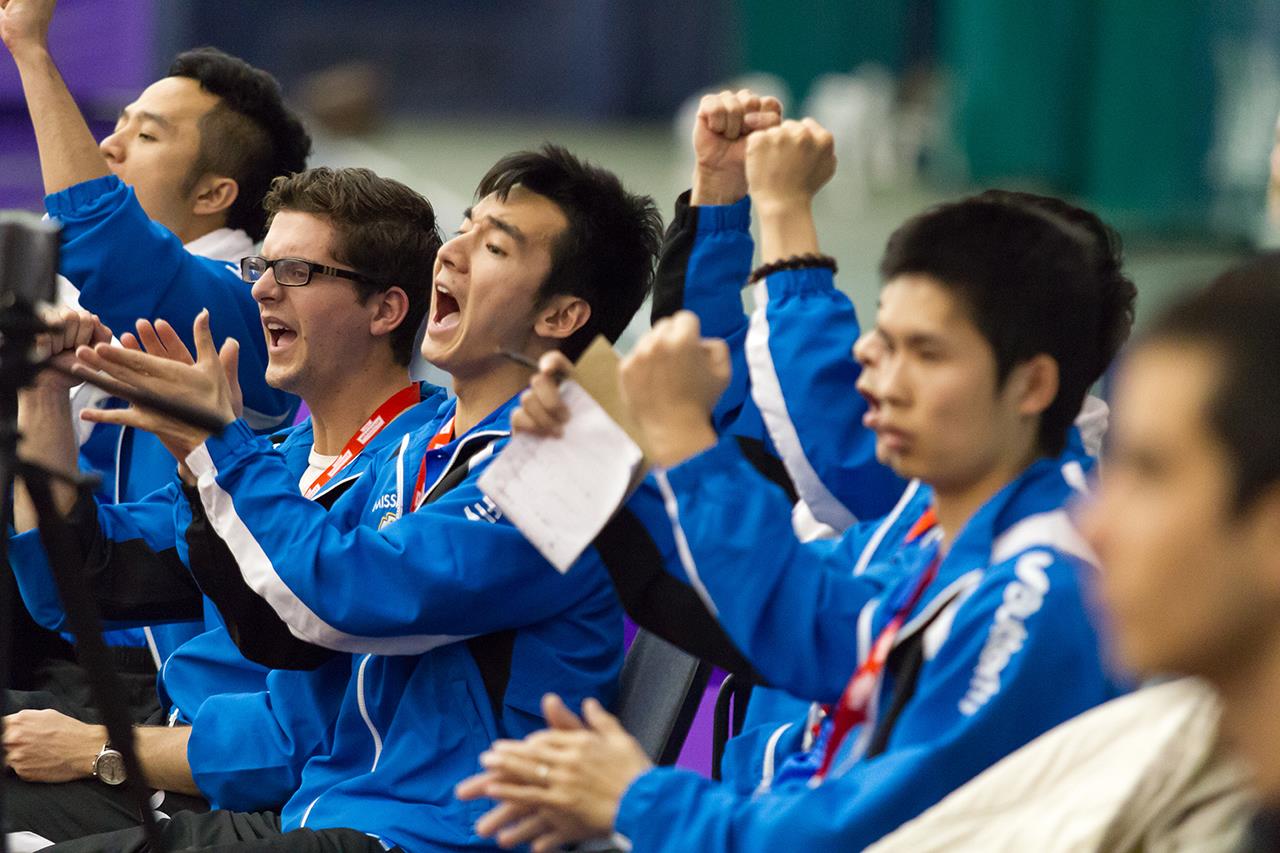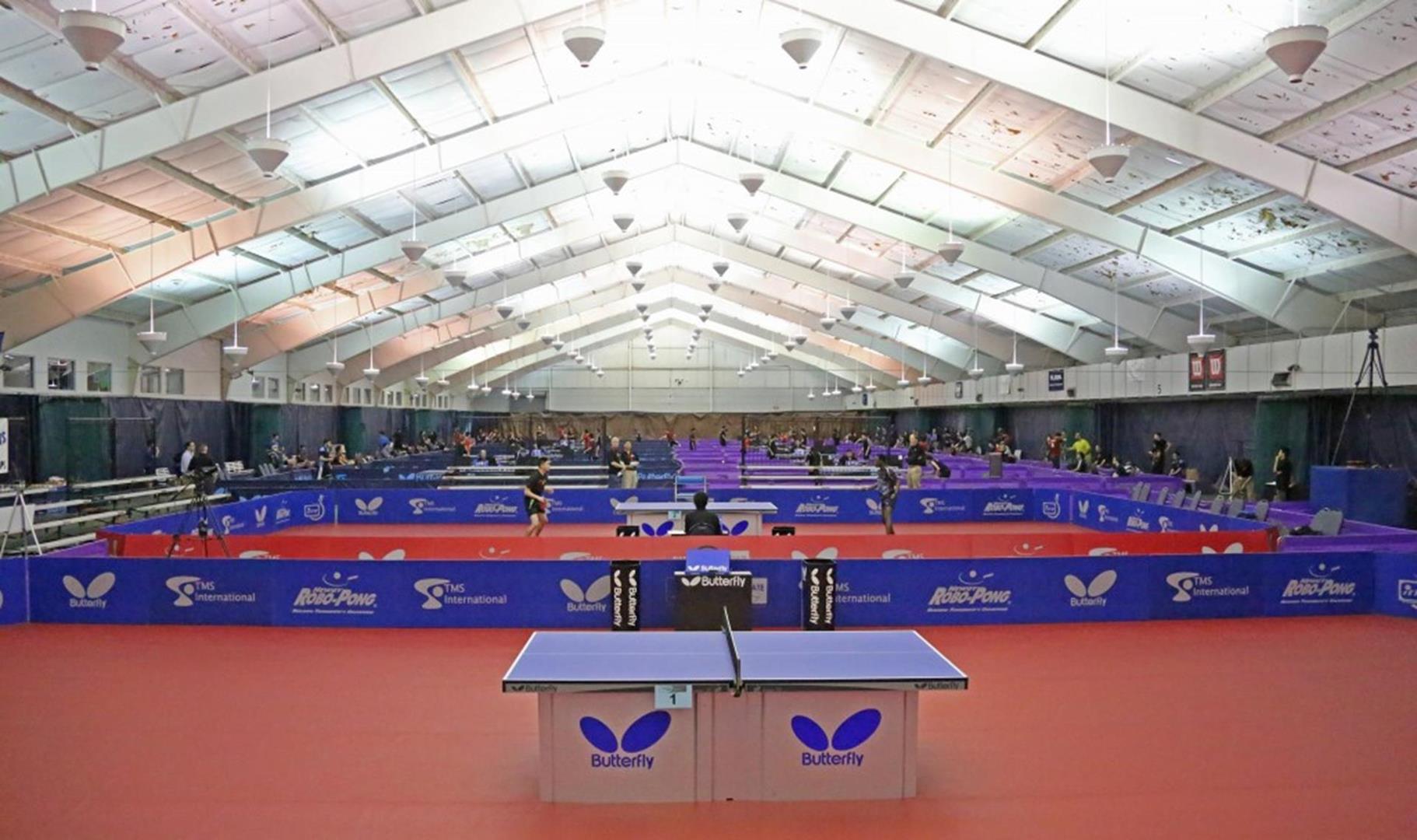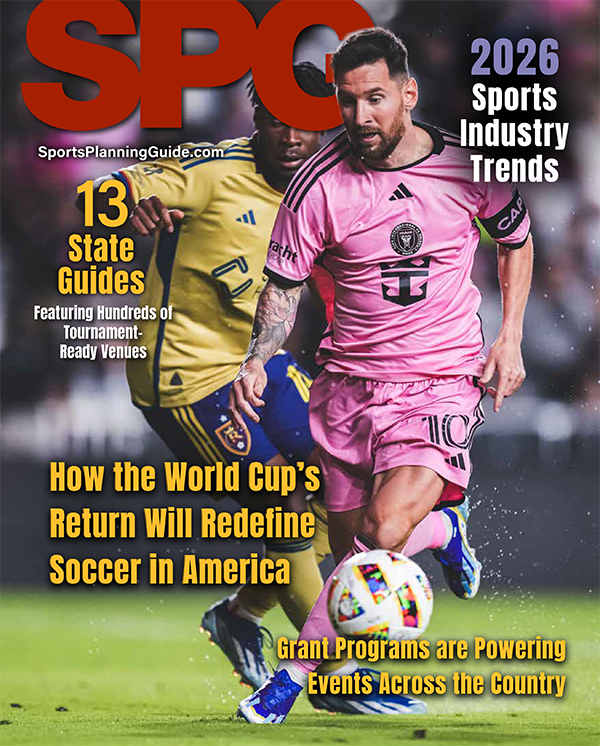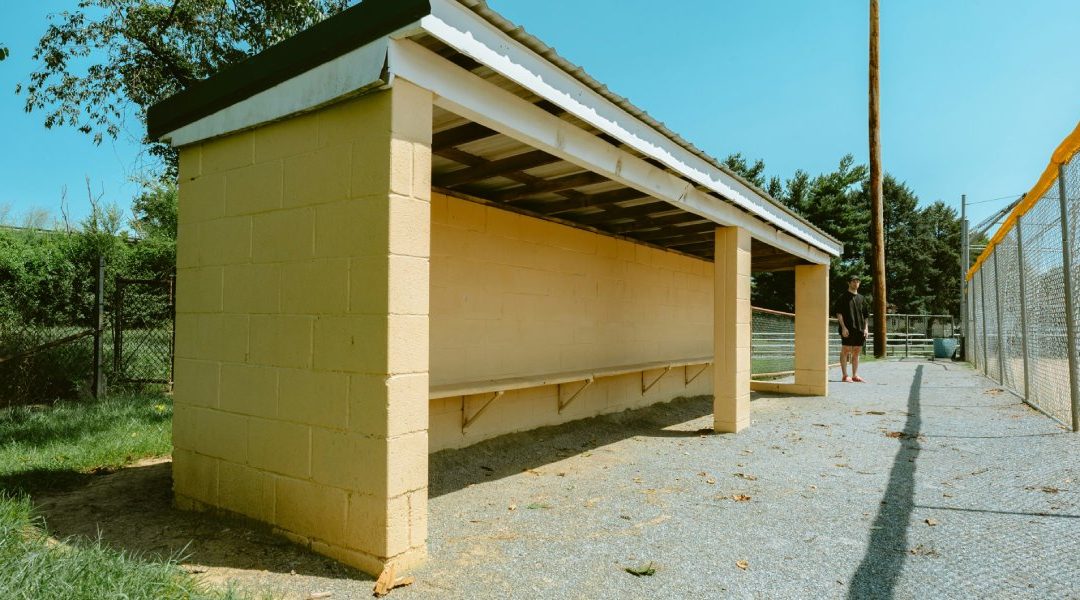Please describe what the NCTTA is all about.
NCTTA is the National Collegiate Table Tennis Association and we manage college table tennis in the USA and even in Canada (they don’t have their own league so we asked them to join us). We promote competitive collegiate table tennis and support the many individuals, coaches, programs and institutions that make it possible. Currently college table tennis is mostly at a club sport level with a few institutions supporting a varsity level component, but we hope to help change that and get more schools and athletic directors on board. NCTTA runs a league during the academic year (September to March) and then we have Regional and National Championships (March and April). Anything and everything that is college table tennis we want to be involved with!
We are an odd organization in that there is no paid staff at NCTTA. The organization is run by the seven board members and some 50 other volunteers located around the country and Canada. Every time I share this with CVBs, sports commissions, etc. they are shocked, but I hope others can understand we love what we do. Of course we would love to all earn a living doing what we are passionate about, but in due time that, too will come. Until then we plug on, moving forward running great events and helping college table tennis reach new heights.
I think we are very lucky in that we have such a positive relationship with the National Governing Body, USA Table Tennis (USATT). Gordon Kaye, who is now the CEO of USATT, actually worked with us in putting on our 2013 National Championship event when he was general manager of the Rockford Area Venues and Entertainment Authority in Rockford, Illinois.
How did you get started?
Personally, I played college table tennis at Florida State University in the late 1990s, and there wasn’t much organization in the sport. I was completing my masters in sports administration and thinking what can I do to enact change in the current structure. I learned how to create a platform for a successful sports business, now I put that into practice! In the late 1990s, there was an organization called LNITT (League of Northeastern Intercollegiate Table Tennis), but they only allowed Ivy League schools to compete.
As the story goes, in 1998 I approached LNITT wanting to join from Florida State University (a non-Ivy League school). The then administrators of LNITT (mere students, mind you) told me it was not possible (the non-Ivy school thing) unless I was able to recruit five more schools (to show that there was an interest). I then learned what it meant to network (pre-internet age) and found 15 other schools in the southeast United States interested in playing competitive college table tennis. We joined in 1998 and in 1999, LNITT became the NCTTA. I volunteered for the organization until they made me president of the board in 2004. I graduated with a master’s in sports administration, got a job working in academic affairs at my alma mater (FSU) and continued with NCTTA since.
What are your goals?
I have several goals for NCTTA. First is to reach as many schools as possible with the collegiate table tennis message. We have a presence in over 200 schools across the U.S. and Canada, but that is just the tip of the iceberg; we can get 500 schools in my opinion.
Second, we want more schools’ athletic directors to buy in to the idea of table tennis scholarship programs. Currently, there are three schools that do such a program. Athletic directors are hesitant due to a lack of information, I imagine, but this is on us to disseminate the message better.
Third is for the organization itself to continue to run the best events possible. We have the best volunteers and hosts (CVBs, Sport Commissions) who understand our mission and understand who we are as people who love table tennis and college table tennis. To be able to run such events on a shoestring budget with no paid staff is amazing. Hopefully, one day we can become a “traditional” organization with staff and HR, etc., but until then we keep on moving forward!
Why do you believe table tennis is growing as a reputable sport?
NCTTA puts on 50 to 60 events per academic year (September to April). We do six Regional Championships and one National Championship; the rest are smaller division events. With the assistance of social media, the sport is in more people’s mindset than it was, say, 15 years ago. Fifteen years ago we didn’t have billionaires like Bill Gates and Warren Buffet following our sport, 15 years ago we didn’t have bars with table tennis as the main component (see SPIN NYC, SPIN LA, etc.), 15 years ago we didn’t have as many schools participating in college table tennis.
I think the sport has had a bad rap until now, being considered a non-sport— something for un-athletic geeks to excel in. As we progress running good events and being more and more apparent on social media, we will get to a point where table tennis is accepted by all without reservation.
I also think it is important to note the difference between ping pong and table tennis. They are essentially the same, only one is more recreational and one is more for sport. Many sports have this kind of difference and are no lesser for it (softball/baseball, flag football/football, etc.). Both are popular and a lot of fun, and I think this is what’s finally coming through!
What do you look for in a venue/from a CVB?
Venue is by far the most important area that we look at when receiving bids for our events. Specifically for our National Championships, we need a facility with wood flooring or sport flooring; no concrete or carpet. Many CVBs and sports commissions we have worked with get this concept that table tennis is a real sport, like volleyball or basketball, and can’t be played on certain surfaces. Also, the fieldhouse or indoor gym needs to have high enough ceilings, adequate lighting and ventilation. We tell hosts routinely that wherever basketball and volleyball are played, we can play there, too.
We like for a CVB/sports commission to be invested with us. We like the hand-holding aspect more than most other organizations. We want the CVB person that sold us on their city or area to be involved in the planning process, or at least have an operations person that can be involved. We have online conference calls once every month to go over logistics, ask questions, finalize arrangements and we do expect that the CVB/sports commissions person to be on the call with us. Overall, we have had very positive experiences with CVBs and sport commissions.






